Consumers are acutely aware of the need to protect themselves and their children from the harmful effects of prolonged exposure to the sun. Just look at how sales of suncare products have soared over the past few years. Between 2000 and 2005, sales of suncare products rose by 46%, according to Mintel's Suncare Report 2005.
Mintel also reveals that sun protection accounts for 78% of sales in the sector, followed by after-sun products (13%) and self-tanners (9%).
The future for sun protection lies in products with a higher sun protection factor and that's what manufacturers have been concentrating on producing. Nivea Sun head of research and development Dr Martin Sugar comments: "Both the Health Education Authority and Imperial Cancer Research Fund have campaigned to raise consumer awareness of the dangers of sunbathing. Skin cancer is the most common form of cancer in the UK and its incidence is rising, so these organisations promote the use of sunscreens with a high factor.
"Suncare manufacturers are continuously researching new methods of application to encourage non-users to wear a sunscreen but also to promote more regular usage among current users. Recent developments in sun protection products have made it easier for consumers to stay protected in the sun for longer. This is primarily due to the invention of waterproof, sand proof and towel proof formulations, as well as the addition of anti-ageing ingredients."
According to Mintel, SPF15 is the single best-selling sunscreen, even though sunscreens with SPFs of 21 or more account for more than 40% of sales. In addition, SPFs of over 30 have grown at more than twice the sector average since 2001 and SPFs of 60 or more are now available.
L'Oréal Paris dermatologist Dr Bataille points out that SPF15 or above is the recommended protection factor for the average Caucasian skin in the UK and is sufficient to prevent incidental sun exposure in the UK. He adds: "It is advisable to wear an SPF every day during the summer - especially fair-skinned people - to reduce premature ageing."
But while manufacturers strive to develop the ultimate suncare protection, the message is only partially getting through to consumers. It seems the unpredictable UK weather fails to inspire us to slap on the cream as often as we should and health authorities remain concerned that high protection sunscreens aren't being used correctly. So there is potentially plenty of room for growth.
One area that really has taken off among women aged 25-34 is the growing plethora of cosmetic products enriched with sun protection properties. Moisturisers and other skincare products are being developed with SPF ratings, such as Aroma-Sun's Protective Anti-Wrinkle Cream SPF15 or L'Oréal's Solar Expertise range, which is based on ultra-protection and skin repairing.
Self-tanning is also increasing in popularity and is currently the best performing suncare segment with sales up more than 22% since 2003. Mintel says that the growth of self-tanning products has been boosted by a general perception that a year-round tan is healthy; a growing pre-occupation with personal appearance; the boom in the use of gyms; and by a growing awareness of the perils of sunbathing.
Self-tanning products had suffered an image problem - products of old were prone to leave tidemarks on skin and have a strange lingering smell, but manufacturers are satisfied that previous concerns are a thing of the past. Nivea Sun's Dr Sugar confirms: "In recent years suncare companies have managed to refine their formulations by adding new ingredients that are capable of producing a more even and realistic- looking tan. Sales of self-tanning products have also been boosted by the endorsement received by consumer press."
All of this is particularly good news for Nice-Pak, which has recently launched self-tanning and after-sun wipes. Director of marketing Ian Anderson explains their appeal. "While experts have warned us for years about the harmful effects of the sun, for many consumers it is only just sinking in that to fake it is a genuinely safe way to achieve that sun-kissed glow. In addition, these products also meet consumers' increasing demand for wet wipes - which is a growing category Europe-wide."
? Nice-Pak International has launched a range of wipes to meet everyday travel needs. There are six Halo wipes: self-tan, after-sun, deodorant, moist toilet tissue, hygienic hand and toilet wipes. They come in a shelf-ready display case and each individual pack of 10 wipes features a contemporary holographic design to maximise on-shelf presence. Rrp is 99p.
? Unilever UK Home & Personal Care has launched Dove Summer Glow Body Lotion, which combines a moisturiser with a hint of self-tanning agent to lightly tan the skin. A £4m support package includes TV and outdoor media. The lotion is available in two 250ml variants - fair to normal and normal to darker skin - and comes in shelf-ready packaging. Rrp is £4.99.
? Malibu Suncare is launching a range of high-protection products this summer. They include a protective lipstick with a protection factor of SPF20+, which retails at £2.29, and two new one-dose sachets - a waterproof SPF20 lotion and a waterproof clear dry oil (SPF15). The sachets are prepacked in neat counter-top dispensers holding 24 products and retailing at 79p each. Malibu is also adding a SPF25 lotion spray to its range of suntan lotions. It retails at £4.99 for a 200ml bottle.
? MozzyOff is a mosquito and midge repellent developed using 100% natural plant oils. Its manufacturer claims MozzyOff is as effective at fighting off irritating insects as chemical-based products - but without any nasty side-effects. It provides protection for up to six hours, is waterproof and contains natural soothing ingredients to relieve the itch of previous bites. MozzyOff comes in a 15ml bottle (rrp £3.99) or a 100ml bottle (rrp £9.95) and its launch will be supported by a marketing campaign.
Vinod Mashru, Bright News, Brighton, east sussex:
"I stock only a minimal suncare range - basically Malibu suntan lotion factors 4, 8, 12 and 16 and an after-sun lotion. My shop is too far back from the beach to have a huge trade in suncare.
"I don't think consumers go for a specific brand but more for the factor, which is why I stick with the one brand. Price isn't an issue either. I stock the range all year because locals buy from us before going abroad - they prefer to buy a brand they know rather than a dubious one abroad."
Kate Dan, manager, Tresco Stores, Tresco, Isle of Scilly:
"I stock a range of Oasis lotions and an after-sun lotion, as well as sunglasses. Sunglasses sell reasonably well; I have a range of about 20 on a spinning stand. The suncare products I have sell pretty much throughout the year although sales are inevitably better during the summer. Sales are also dependent on the weather. I am quite lucky because the weather is generally better here than on the mainland."
Mintel also reveals that sun protection accounts for 78% of sales in the sector, followed by after-sun products (13%) and self-tanners (9%).
The future for sun protection lies in products with a higher sun protection factor and that's what manufacturers have been concentrating on producing. Nivea Sun head of research and development Dr Martin Sugar comments: "Both the Health Education Authority and Imperial Cancer Research Fund have campaigned to raise consumer awareness of the dangers of sunbathing. Skin cancer is the most common form of cancer in the UK and its incidence is rising, so these organisations promote the use of sunscreens with a high factor.
"Suncare manufacturers are continuously researching new methods of application to encourage non-users to wear a sunscreen but also to promote more regular usage among current users. Recent developments in sun protection products have made it easier for consumers to stay protected in the sun for longer. This is primarily due to the invention of waterproof, sand proof and towel proof formulations, as well as the addition of anti-ageing ingredients."
According to Mintel, SPF15 is the single best-selling sunscreen, even though sunscreens with SPFs of 21 or more account for more than 40% of sales. In addition, SPFs of over 30 have grown at more than twice the sector average since 2001 and SPFs of 60 or more are now available.
L'Oréal Paris dermatologist Dr Bataille points out that SPF15 or above is the recommended protection factor for the average Caucasian skin in the UK and is sufficient to prevent incidental sun exposure in the UK. He adds: "It is advisable to wear an SPF every day during the summer - especially fair-skinned people - to reduce premature ageing."
But while manufacturers strive to develop the ultimate suncare protection, the message is only partially getting through to consumers. It seems the unpredictable UK weather fails to inspire us to slap on the cream as often as we should and health authorities remain concerned that high protection sunscreens aren't being used correctly. So there is potentially plenty of room for growth.
One area that really has taken off among women aged 25-34 is the growing plethora of cosmetic products enriched with sun protection properties. Moisturisers and other skincare products are being developed with SPF ratings, such as Aroma-Sun's Protective Anti-Wrinkle Cream SPF15 or L'Oréal's Solar Expertise range, which is based on ultra-protection and skin repairing.
Self-tanning is also increasing in popularity and is currently the best performing suncare segment with sales up more than 22% since 2003. Mintel says that the growth of self-tanning products has been boosted by a general perception that a year-round tan is healthy; a growing pre-occupation with personal appearance; the boom in the use of gyms; and by a growing awareness of the perils of sunbathing.
Self-tanning products had suffered an image problem - products of old were prone to leave tidemarks on skin and have a strange lingering smell, but manufacturers are satisfied that previous concerns are a thing of the past. Nivea Sun's Dr Sugar confirms: "In recent years suncare companies have managed to refine their formulations by adding new ingredients that are capable of producing a more even and realistic- looking tan. Sales of self-tanning products have also been boosted by the endorsement received by consumer press."
All of this is particularly good news for Nice-Pak, which has recently launched self-tanning and after-sun wipes. Director of marketing Ian Anderson explains their appeal. "While experts have warned us for years about the harmful effects of the sun, for many consumers it is only just sinking in that to fake it is a genuinely safe way to achieve that sun-kissed glow. In addition, these products also meet consumers' increasing demand for wet wipes - which is a growing category Europe-wide."
Product news
? Nice-Pak International has launched a range of wipes to meet everyday travel needs. There are six Halo wipes: self-tan, after-sun, deodorant, moist toilet tissue, hygienic hand and toilet wipes. They come in a shelf-ready display case and each individual pack of 10 wipes features a contemporary holographic design to maximise on-shelf presence. Rrp is 99p.
? Unilever UK Home & Personal Care has launched Dove Summer Glow Body Lotion, which combines a moisturiser with a hint of self-tanning agent to lightly tan the skin. A £4m support package includes TV and outdoor media. The lotion is available in two 250ml variants - fair to normal and normal to darker skin - and comes in shelf-ready packaging. Rrp is £4.99.
? Malibu Suncare is launching a range of high-protection products this summer. They include a protective lipstick with a protection factor of SPF20+, which retails at £2.29, and two new one-dose sachets - a waterproof SPF20 lotion and a waterproof clear dry oil (SPF15). The sachets are prepacked in neat counter-top dispensers holding 24 products and retailing at 79p each. Malibu is also adding a SPF25 lotion spray to its range of suntan lotions. It retails at £4.99 for a 200ml bottle.
? MozzyOff is a mosquito and midge repellent developed using 100% natural plant oils. Its manufacturer claims MozzyOff is as effective at fighting off irritating insects as chemical-based products - but without any nasty side-effects. It provides protection for up to six hours, is waterproof and contains natural soothing ingredients to relieve the itch of previous bites. MozzyOff comes in a 15ml bottle (rrp £3.99) or a 100ml bottle (rrp £9.95) and its launch will be supported by a marketing campaign.
Retailers' comments
Vinod Mashru, Bright News, Brighton, east sussex:
"I stock only a minimal suncare range - basically Malibu suntan lotion factors 4, 8, 12 and 16 and an after-sun lotion. My shop is too far back from the beach to have a huge trade in suncare.
"I don't think consumers go for a specific brand but more for the factor, which is why I stick with the one brand. Price isn't an issue either. I stock the range all year because locals buy from us before going abroad - they prefer to buy a brand they know rather than a dubious one abroad."
Kate Dan, manager, Tresco Stores, Tresco, Isle of Scilly:
"I stock a range of Oasis lotions and an after-sun lotion, as well as sunglasses. Sunglasses sell reasonably well; I have a range of about 20 on a spinning stand. The suncare products I have sell pretty much throughout the year although sales are inevitably better during the summer. Sales are also dependent on the weather. I am quite lucky because the weather is generally better here than on the mainland."

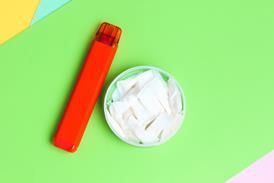
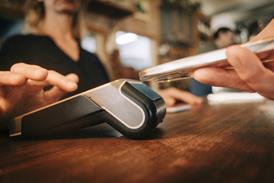
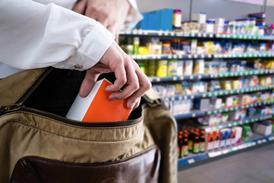




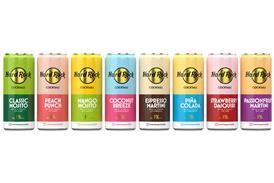

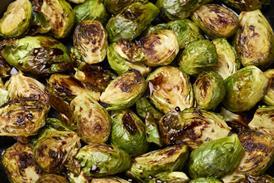
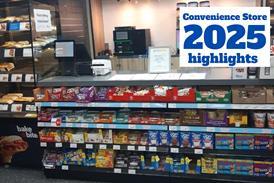
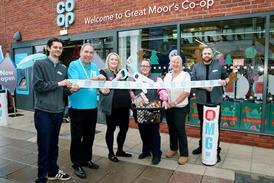
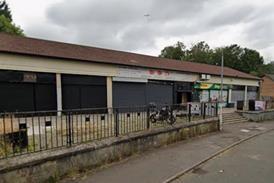










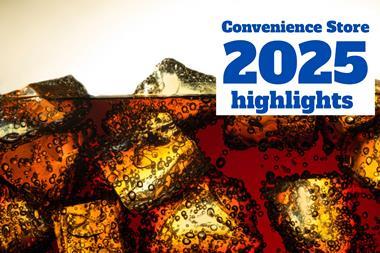
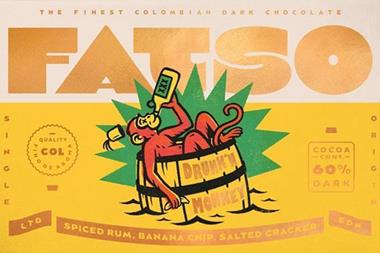


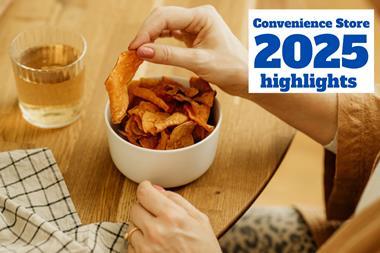
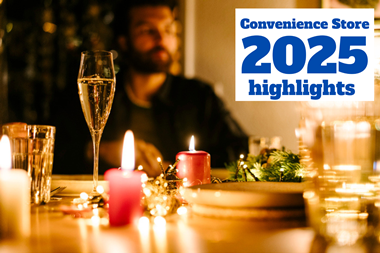
No comments yet